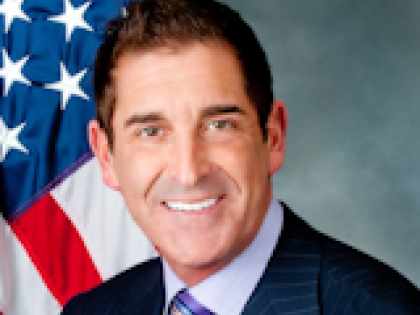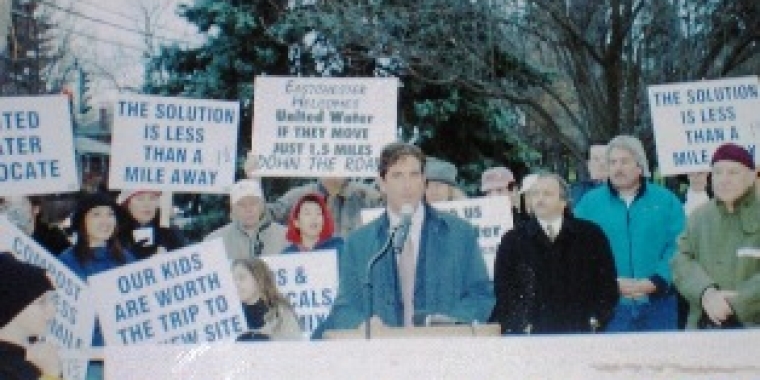
Klein Blasts Backroom Deal Allowing Delaware Pump Station In Residential Eastchester Neighborhood
Jeffrey D. Klein
December 18, 2005

Senator Jeff Klein (D-Westchester/Bronx) today condemned an expected deal between the Town of Eastchester and United Water of New Rochelle that would allow the construction of a greatly expanded water pumping station in a residential neighborhood.
The new facility would measure 7,660 square feet, and would be capable of treating and pumping up to 50 million gallons of water a day, a tenfold increase over the current facility. Klein is especially troubled by the fact that such a dramatic increase in plant size and capacity has not triggered any environmental analysis of the impact both on neighboring properties and on water, soil and air quality of the local environment.
In Klein’s opinion, “Not requiring an environmental impact statement was a mistake then, but it is a disaster now.”
Approximately 25,000 gallons of hazardous chemicals like caustic soda (600 gallons), sodium hypochlorite (600 gallons) and corrosion inhibitor (1,300 gallons) will be stored at the proposed Delaware Pump Station, which is near homes and schools. While the latest plan calls for special fire department training in responding to potential chemical fires, Klein feels that the dangers posed by fires and the release of airborne chemicals are risks that should be studied more carefully before construction is allowed.
In addition to the potential for accidental mishaps involving several tons of dangerous chemicals, Klein is concerned about the threat posed by of intentional acts of terrorism designed to disrupt or contaminate the New York City water supply. As the author of a 2002 state law requiring water facilities to assess their vulnerability to sabotage and improve their security, Klein is only too well aware that the situation today is dramatically different than it was a decade ago when the plan was first proposed.
Klein also believes that the size and scale of the proposed pump station are grossly incompatible with the existing land uses and aesthetics of the residential neighborhood in which it will sit. In his opinion, the Town of Eastchester is wasting an opportunity to protect the character and integrity of its residential neighborhoods.
“The increased noise, pollution and traffic expected to be generated by the plant are better suited to an industrial zone than a residential street,” Klein said.
United Water New Rochelle, a public utility, supplies drinking water from New York City’s Catskill and Croton Aqueducts to 137,000 residential and business customers in 13 Westchester County communities. It was ordered 15 years ago by the New York State Department of Health to either filter the water from the Croton Aqueduct or find an alternate source. The utility has proposed to comply with this order by tapping into New York City’s Delaware Aqueduct, building a new transmission main to deliver that water to its existing distribution system and constructing a new water treatment and pump station, the Delaware Pump Station, in a residential neighborhood in Eastchester.